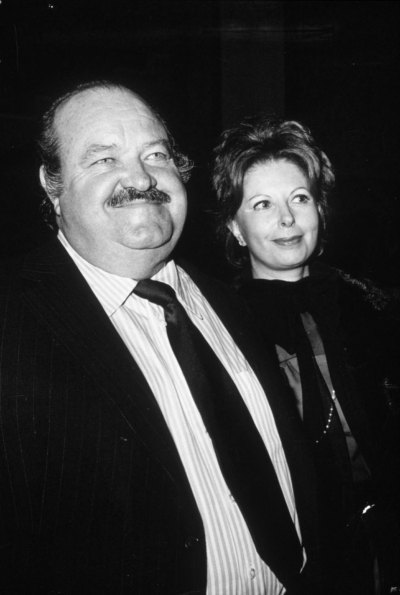There’s something undeniably powerful about a voice that commands a room the moment it speaks. William Conrad had one of those voices—a deep, resonant tone that made people stop and listen. But what was it like growing up with a father like that? "As a kid, it was actually kind of wild getting yelled at by him—he was particularly effective," Christopher Conrad tells Closer Weekly. "You wouldn’t think so, because his voice came off as so gruff and intimidating, but he was a loving, wonderful, sweet man. He had this way of making you feel seen and valued, even if he was just giving you a hard time."
The Charismatic Career of William Conrad
Standing short and round, William Conrad didn’t exactly fit the Hollywood mold of what a leading man should look like. Yet, despite his untraditional appearance, he carved out a remarkable career in entertainment. He found success in films, like his iconic role in the 1946 classic The Killers, where he played one of the title characters. His radio career skyrocketed when he became the original Matt Dillon on Gunsmoke, cementing his status as a household name. And later, he brought his charisma to television with hit crime dramas like Cannon and Jake and the Fatman. "He was just a fascinating man with a lot of charisma," says Charles Tranberg, author of William Conrad: A Life & Career. "He knew who he was, and he owned it. He didn’t try to be someone else—he was comfortable in his own shoes."
Early Beginnings: Discovering His Passion for Performing
Born in Louisville, Kentucky, William Conrad grew up surrounded by the magic of movies. His parents owned a local theater, which sparked his early fascination with the world of entertainment. "His first job was singing at a funeral home," Christopher shares with pride. "He had this incredible voice, and he loved to sing. It wasn’t just about acting for him—it was about connecting with people through performance."
Read also:Glen Turman The Rising Star In The World Of Entertainment
When World War II came along, William joined the fight as a fighter pilot. However, due to night blindness, he was grounded before he could see combat. Instead, he channeled his talents into the Armed Forces Radio Network, where his voice quickly became a staple of the airwaves. This experience paved the way for his breakout role on Gunsmoke, where he became a beloved figure in American households. But when CBS decided to bring Gunsmoke to television in 1955, they chose the more visually appealing James Arness to play Matt Dillon instead of William. "He always said he wasn’t disappointed," Tranberg reflects. "But I think there was a little bit of resentment there. He knew he could have brought something special to that role."
Love and Legacy: The Personal Side of William Conrad
In 1957, William’s personal life took a dramatic turn when he divorced his first wife, June Nelson, and married model Susan Randall, Christopher’s mother. "He never felt right about leaving June—that was one thing he always regretted," Christopher explains. "But he adored my mom. He loved her fiercely and deeply." The couple shared a vibrant relationship until Susan’s tragic passing from breast cancer in 1979. "It was really hard for him," Christopher recalls. "She was this beautiful, proud, vivacious woman, and my father loved her until the day she died."

A Return to Fame with 'Cannon'
Finally, in 1971, William Conrad found the television success he deserved when he starred in Cannon as an irascible detective. "He was an everyman," Christopher says fondly. "He wasn’t particularly graceful, and that’s why America related to him so well. He was real, and he let people see that." The show became a massive hit, solidifying William’s place in TV history.
Challenges and Triumphs in Later Life
After Cannon ended in 1976, life threw some tough challenges William’s way. Susan’s battle with breast cancer was devastating for him, and he never fully recovered from her loss. Meanwhile, William also struggled with his own health issues, including his weight. "He was always on a diet—he loved to eat and had little self-control over that," Christopher explains. "But being heavyset was just part of who he was. It was his nature." This aspect of his personality even inspired the title of his final hit show, Jake and the Fatman, which aired from 1987 to 1992.
William passed away in 1994 at the age of 73, but his legacy lives on in the hearts of those who knew him. "My father said it was the most important thing to him that he be remembered as a kind man, a nice man," Christopher remembers. "And he was. He was an amazing man—an incredible father, a loving husband, and a true artist."
Bruce Fretts, with reporting by Amanda Champagne Meadows
Read also:Blue Earth County Jail Mn Your Ultimate Guide To Understanding The System
For more on this story, pick up the latest issue of Closer magazine, on newsstands now.


